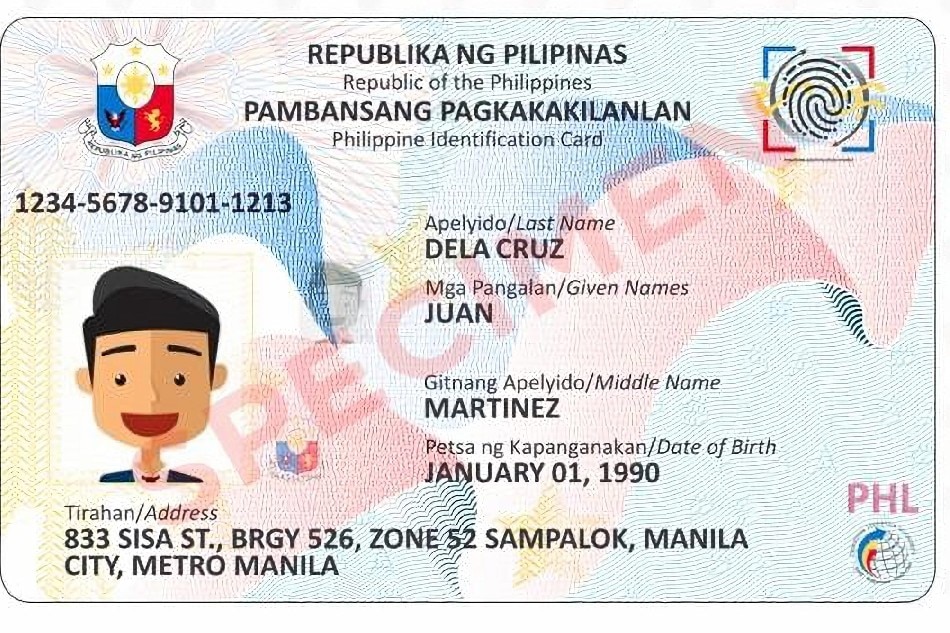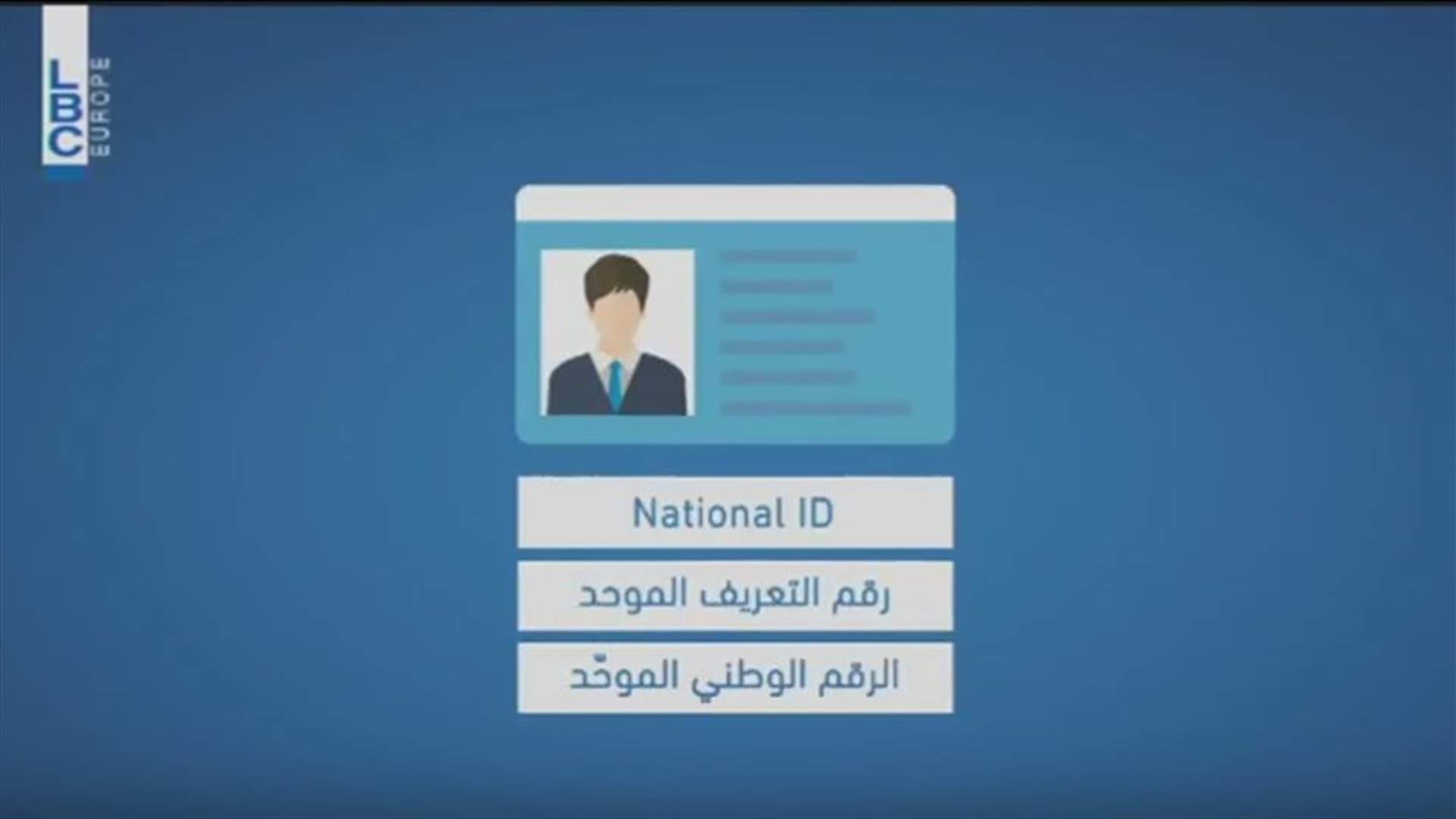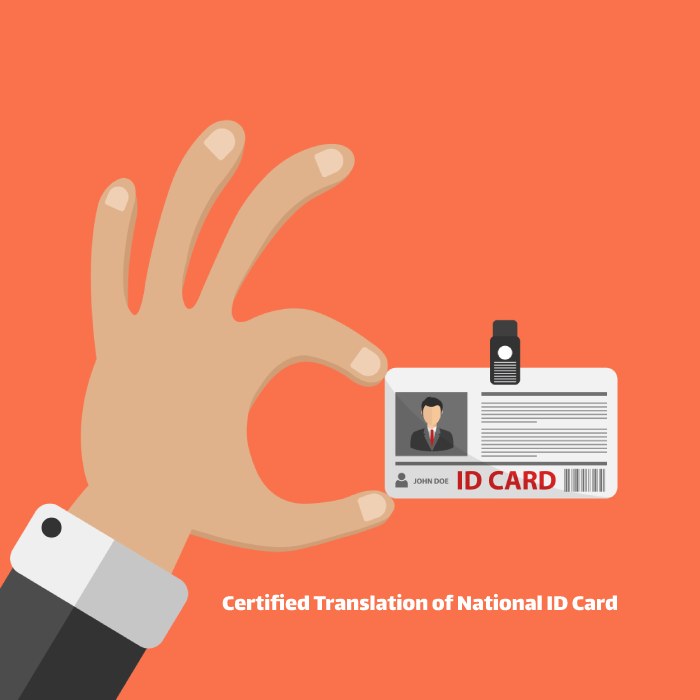National ID Guide: Everything You Need To Know [Updated!]
Ever stopped to consider the unassuming card nestled in your wallet, the one you flash at security checkpoints and government offices? That small piece of plastic is a key to unlocking a nation. We're diving deep into the world of national identity cards, exploring their purpose, their power, and the evolving role they play in our interconnected world.
The national identity card, often shortened to national ID, is more than just a photo ID. It's a formal document issued by a government to its citizens or residents, serving as an official means of identification within the borders of that country. It's a declaration of who you are, according to the state. The information contained on these cards varies from country to country, but typically includes a photograph, name, date of birth, and a unique identification number. This number, often assigned at birth, links the cardholder to a vast database of personal information held by the government. In essence, the national ID serves as a physical manifestation of your presence within the nation-state.
| Attribute | Details |
| Full Name | [Varies Depending on the Person] |
| Date of Birth | [Varies Depending on the Person] |
| Place of Birth | [Varies Depending on the Person] |
| Nationality | [Varies Depending on the Person] |
| National Identification Number | [Unique Number Assigned by the Government] |
| Issuing Authority | Ministry of Interior or Equivalent Government Agency |
| Card Expiry Date | [Varies Depending on the Country's Policy] |
| Occupation | [If Included on the ID - Varies Depending on the Person] |
| Address | [If Included on the ID - Varies Depending on the Person] |
| Marital Status | [If Included on the ID - Varies Depending on the Person] |
| Reference Website | USA.gov - Identity Theft (Example - Replace with a more relevant government website if available) |
The significance of a national ID extends far beyond simple identification. It acts as a facilitator, a key that unlocks access to a wide range of services and rights within a nation. Think about it: opening a bank account, accessing healthcare, enrolling in school, applying for a job, voting in elections, or even receiving government benefits often requires presenting a valid national ID. It streamlines bureaucratic processes, ensuring that individuals can readily prove their eligibility for these essential services. In this context, the national ID can be seen as a tool for social inclusion, empowering citizens to fully participate in society. Without it, individuals may face significant barriers to accessing opportunities and exercising their rights.
- Who Is David Boons Family Wife Children More
- Khatrimaza 2025 Bollywood Hollywood Movies Where To Watch
However, the implementation and utilization of national ID systems are not without their complexities and controversies. One of the primary concerns revolves around data privacy. National ID systems inherently involve the collection and storage of vast amounts of personal information, making them potential targets for data breaches and misuse. The security of these databases is paramount, and governments must invest heavily in robust cybersecurity measures to protect citizens' sensitive data. Furthermore, there are concerns about the potential for government surveillance. The ability to track and monitor citizens' activities through their national ID raises questions about civil liberties and the potential for abuse of power. Striking a balance between national security and individual privacy is a critical challenge in the design and implementation of national ID systems.
Another area of debate centers on the issue of accessibility. While national IDs are intended to be universally available to all citizens, logistical and bureaucratic hurdles can sometimes prevent marginalized communities from obtaining them. Individuals living in remote areas, those lacking the necessary documentation, or those facing language barriers may encounter significant difficulties in navigating the application process. This can lead to a situation where the very people who need access to government services the most are excluded from the system. Ensuring equitable access to national IDs requires proactive outreach efforts, simplified application procedures, and culturally sensitive communication strategies.
The uses of a national ID are manifold and deeply intertwined with the functioning of modern society. In many countries, it's virtually impossible to navigate daily life without one. Consider the simple act of opening a bank account. Financial institutions require a valid form of identification to verify the applicant's identity and prevent fraud. The national ID serves as the gold standard for this purpose, providing a reliable and readily verifiable source of information. Similarly, when accessing healthcare services, patients are often required to present their national ID to register at a clinic or hospital. This helps to ensure accurate record-keeping and prevents identity theft within the healthcare system.
The role of the national ID extends to the realm of education. Schools and universities often require students to provide their national ID during enrollment. This allows educational institutions to track student progress, allocate resources effectively, and ensure that only eligible individuals are receiving educational benefits. In the employment sector, employers frequently request a national ID as part of the hiring process. This helps them to verify the applicant's identity, confirm their eligibility to work in the country, and comply with labor laws.
Perhaps one of the most fundamental uses of the national ID is in the electoral process. In democratic societies, the right to vote is a cornerstone of citizenship. National IDs are often used to register voters, verify their identity at polling stations, and prevent voter fraud. This helps to ensure the integrity of elections and uphold the principles of democratic governance. Beyond these essential services, national IDs also play a role in accessing a range of government benefits, such as social security, unemployment insurance, and housing assistance. These programs are designed to provide a safety net for vulnerable populations, and the national ID serves as a means of verifying eligibility and preventing fraudulent claims.
The Ministry of Interior recently announced the immediate launch of services for issuing national ID cards in seven cities across the country. This initiative aims to broaden the application of services within the civil status sector for citizens. The civil status department, affiliated with the Ministry of Interior, will immediately issue new national IDs in these designated cities. This move signifies a commitment to streamlining the process of obtaining national IDs and making them more accessible to citizens throughout the country.
In Egypt, the national ID card, or national identification number card, is the primary identification document that proves the identity of citizens within the country's borders. Outside the country, a passport serves as proof of identity. The national ID card is issued by the Ministry of Interior and contains a unique identification number that is assigned to each citizen at birth. This number remains constant throughout their life and is used for a variety of purposes, including accessing government services, opening bank accounts, and voting in elections. The national ID system in Egypt has played a crucial role in establishing national databases for all members of society. This integrated system provides information to beneficiaries across the country, supporting planning and decision-making related to economic and social development.
The specific content of a national ID card varies from country to country, reflecting different national priorities and technological capabilities. However, certain core elements are typically included. The cardholder's full name is, of course, a fundamental piece of information, along with their date and place of birth. These details help to establish the individual's identity and distinguish them from others with similar names. A photograph is another essential component, providing a visual representation of the cardholder. This allows authorities to quickly verify the individual's identity and prevent impersonation.
The unique national identification number is perhaps the most critical element of the card. This number serves as a key identifier, linking the cardholder to their records within government databases. It's used to track their interactions with various government agencies and access their eligibility for different services. The card's expiry date is also an important detail, indicating when the card needs to be renewed. This helps to ensure that the information on the card remains up-to-date and accurate.
Some national ID cards may include additional information, such as the cardholder's address, occupation, or marital status. The inclusion of this information depends on the specific regulations of the country issuing the card. Modern national ID cards often incorporate advanced security features to prevent counterfeiting and fraud. These features may include holograms, microprinting, and biometric data, such as fingerprints or facial recognition scans. These technologies enhance the security of the card and make it more difficult for criminals to create fake IDs.
The use of a national ID is often required in a variety of situations. For example, you'll need to show your ID card to get in to many buildings, especially government buildings or secure facilities. This is a standard security measure to ensure that only authorized personnel are granted access. Similarly, you may be asked to present your ID card when interacting with law enforcement officials. This allows officers to verify your identity and check for any outstanding warrants or violations. In many countries, you're also required to carry your national ID card with you at all times and present it upon request by law enforcement. This is intended to facilitate law enforcement efforts and maintain public safety.
Beyond these official uses, national IDs also play a role in everyday transactions. For instance, you may need to show your ID card when purchasing age-restricted products, such as alcohol or tobacco. This helps to prevent underage sales and comply with local regulations. When opening a bank account or applying for a loan, financial institutions require a valid form of identification. The national ID card serves as a reliable and verifiable source of information for this purpose. Similarly, when renting a car or checking into a hotel, you'll typically be asked to present your ID card. This allows businesses to verify your identity and protect themselves from fraud.
The concept of a national ID badge extends to other contexts as well. An identification badge, or ID badge, is a label that identifies the wearer. These badges are commonly used in workplaces, schools, and other organizations to provide visual identification of employees, students, or members. The thieves passed through security using forged identification badges, highlighting the importance of secure ID systems. These badges often include the wearer's photograph, name, and job title, along with the organization's logo. They may also incorporate security features, such as barcodes or magnetic stripes, to control access to restricted areas.
The British government is planning to introduce identity cards for all citizens, reflecting a growing trend towards national ID systems around the world. These cards are intended to streamline government services, combat identity theft, and enhance national security. However, the proposal has also sparked debate about privacy concerns and the potential for government overreach. The implementation of a national ID system requires careful consideration of these issues to ensure that it serves the public interest while protecting individual rights.
The national ID system has addressed the establishment of national databases for all members of society to build an integrated system capable of providing information to all the beneficiaries in the country in support of planning and making public decisions related to economic and social development. This centralized database allows government agencies to access and share information more efficiently, improving the delivery of services and facilitating evidence-based policymaking. By providing a comprehensive view of the population, the national ID system supports informed decision-making in areas such as healthcare, education, and social welfare.
In addition to its practical applications, the national ID also carries symbolic weight. It represents a citizen's membership in the nation-state and their entitlement to the rights and privileges associated with that citizenship. It's a tangible reminder of their connection to the country and its shared values. The national ID can also foster a sense of national unity and identity. By providing a common identifier for all citizens, it promotes a sense of belonging and shared purpose. However, it's important to recognize that national identity is a complex and multifaceted concept, and the national ID is just one piece of the puzzle.
The question, "What is the purpose of an ID?" is often asked. An ID is what distinguishes individuals from one another. Every entity has a unique identifier, and the ID signifies identity. Identity defines its owner, distinguishing each from the other; every entity has its own unique ID. An ORCID ID can be obtained without registering upon entry. All that's needed is a valid email address for registration and a working internet connection with a web browser and a little bit of time.
In a world increasingly reliant on digital identification, the future of the national ID is likely to involve greater integration with technology. Smart cards, mobile IDs, and biometric authentication are all potential avenues for enhancing the security and functionality of national ID systems. However, these advancements also raise new challenges related to data privacy and cybersecurity. As technology evolves, governments must adapt their national ID systems to stay ahead of the curve and protect citizens' data from emerging threats.
The use of the International Bank Account Number (IBAN) may allow you to easily use your Egyptian bank account number for transfers to local banks through the Ahli Net service. The International Baccalaureate (IB) is an international educational organization founded in Geneva, Switzerland. It maintains a head office there and is a global administrator of all types.
Ultimately, the national ID is a powerful tool that can be used to promote social inclusion, enhance national security, and improve the efficiency of government services. However, it's essential to implement these systems in a way that protects individual privacy, ensures equitable access, and upholds democratic values. By carefully considering these issues, governments can harness the potential of national IDs to create a more just and prosperous society for all citizens. Information that might help with editing could include additional details about specific national ID systems, their security features, and the legal frameworks that govern their use.

National ID to become more accessible via mobile version ABS CBN News

ما هي الـ National ID ؟ Lebanon News

Certified Translation of National ID Card دارالترجمه رسمی پارسیس